 Dear Jeremy,
Dear Jeremy,
Instead of a famous “Festschrift” to honour your academic achievements, we – your academic colleagues, former supervisees, and friends – have chosen a different format. We believe that your impressive academic credentials need not be restated here. They speak for themselves. What needs to be said is that not only did your ideas transform the way we think about public policy and the EU, but that you have had a transformative impact on all of us and our lives. And, mind you, the good news is: it was for the better!
We are, of course, only a small subset of your colleagues and friends, wishing you the best for your big day and the many years that are still to come. What unites all of us (and the many more who know you) is that we did not only have the fortune to work with you, but that we have also come to share remarkably similar experiences in that process – whether it is your enduring support for each of us, or your preaching of the virtue that 7 a.m. is the new 9 a.m.
Have a jolly good day.
And cheers!
Michael Blauberger, Professor of European Politics and Political Theory, University of Salzburg
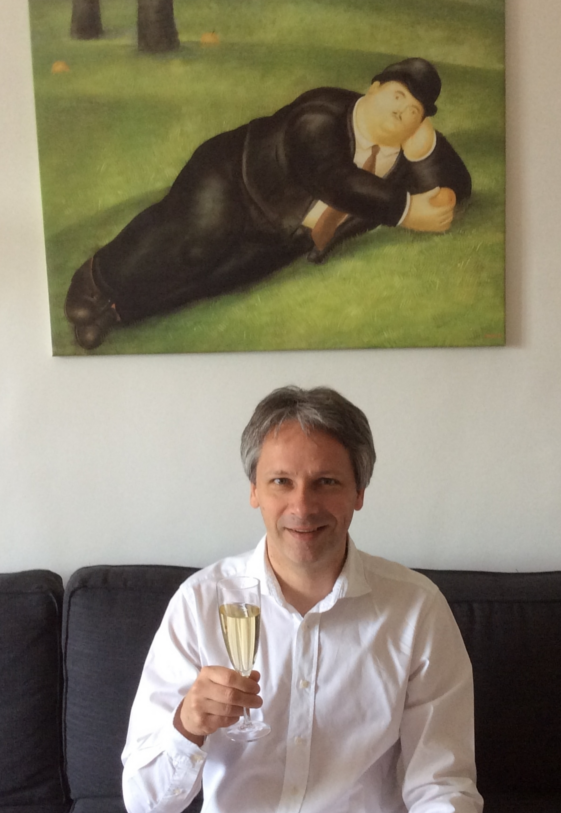 “Congratulations to the nicest, most professional, most humorous, most encouraging person … that I have never met in person. Jeremy, I wish you all the best for your 75th birthday and I hope to meet you before you turn 100.
“Congratulations to the nicest, most professional, most humorous, most encouraging person … that I have never met in person. Jeremy, I wish you all the best for your 75th birthday and I hope to meet you before you turn 100.
Cheers,
Michi”
Nigel Bowles, Senior Research Fellow, Corpus Christi College, University of Oxford
 “Of the many reasons I have to be grateful to Jeremy, one of the most powerful is the influence that he has had upon my supervising of PhD students. I recall in particular his wise advice to his own doctoral students that they should always keep in mind the need to have (and frequently to refine) a disciplined 500-word statement of the theoretical contribution that their research is making, and to show why that contribution matters for political science. He elaborated that imperative brilliantly but succinctly, and I have never forgotten it. So – thank you, Jeremy, and very many happy returns on the occasion of your 75th!”
“Of the many reasons I have to be grateful to Jeremy, one of the most powerful is the influence that he has had upon my supervising of PhD students. I recall in particular his wise advice to his own doctoral students that they should always keep in mind the need to have (and frequently to refine) a disciplined 500-word statement of the theoretical contribution that their research is making, and to show why that contribution matters for political science. He elaborated that imperative brilliantly but succinctly, and I have never forgotten it. So – thank you, Jeremy, and very many happy returns on the occasion of your 75th!”
Hans Bressers, Professor of Policy Studies and Environmental Policy, University of Twente
 “Dear Jeremy,
“Dear Jeremy,
My warm congratulations for you at this terrific age mark! That time flies becomes extra clear when I looked up how long ago it must have been that Larry and I were visiting you in Warwick to work on the Environmental Politics special issue on water networks. That must have been at least 23 years ago! Not only I remember the exorbitant great breakfasts in the B&B that you had recommended to us, especially for that reason. I also remember you looking very sad towards an impressive pile of student work that you had to read and mark. Hopefully your advanced age has freed you from that!
All the best,
Hans”
Thomas Christiansen, Chair in European Institutional Politics, Maastricht University
 “Dear Jeremy,
“Dear Jeremy,
It is a great pleasure to congratulate you whole-heartedly on your 75th birthday, and to take the opportunity to thank you for all the support I received from you, especially in the early stages of my career. The chance of doing a post-doc under your supervision in Essex was already a great opportunity, but what ultimately mattered much more was the encouragement and the guidance you gave me during those two years. Seeing from close quarters how you build up JEPP from scratch to become very quickly the leading journal in our field, or how you brought together senior and junior scholars to create a new kind of textbook on EU-policymaking – these were all master classes in academic publishing, and I feel fortunate and grateful for having had the chance not only to observe your work and learn from you, but also for your invitation to contribute to these projects. You have been a great mentor for me and many others in our profession, and reflecting on the importance you have had for my professional development makes me regret that we haven’t seen much of each other in recent years. Well, I guess we have to blame the early Jeremexit from Europe for that….
I wish you all the best on your special day – good health, happiness and many happy returns – while also hoping that you will continue making your unique contribution to our profession.
Thomas”
David Coen, Professor of Public Policy, University College London
 “Dear Jeremy,
“Dear Jeremy,
Happy birthday! I can’t believe it’s your 75th birthday, but as we have known each other for 25 years, I guess it makes sense. I wanted to thank you for all the support and advice you have given me over the years as an editor, co-author, and friend. You published my first ever paper in JEPP which helped start me on my career and I always enjoy your kind e-mails and updates when you now ask me to review for you. Enjoy the Rugby Lions tour.
Best wishes,
David”
Laura Cram, Professor of European Politics, University of Edinburgh
 “My overwhelming sense of Jeremy is that of a force of nature – his energy is irrepressible. My recollection of arriving to work for Jeremy, in my very first job as a research assistant, typically involved finding a fax that had arrived at 6 am, an answer-machine message that had arrived at 5am and a handwritten note on my key-board, left the night before… thankfully it was not yet the age of Email. EPPI, at Warwick University, was where Jeremy set up JEPP and where he created the most amazing environment for young researchers to thrive and flourish. If we were willing to work hard, he would back us all the way – even push us forward when we hesitated to push ourselves. So many of us – Dan Wincott, Claudio Radaelli, Amy Verdun, Gerda Falkner, Danica Fink Haffner, to name a few – passed through EPPI, and still value the friendships forged and talk about the privileged environment that we worked in and that allowed us to grow. I can’t tell you how often I repeat lessons learned from Jeremy – as a teacher, as a research mentor and as a manager – to my students and to my colleagues. Power, Jeremy would remind us, like beauty, is not evenly distributed – but there is a great beauty in exercising power well and in helping to distribute the joy of teamwork, learning and pushing the boundaries. For all that and more – thanks Jeremy – lang may yer lum reek!”
“My overwhelming sense of Jeremy is that of a force of nature – his energy is irrepressible. My recollection of arriving to work for Jeremy, in my very first job as a research assistant, typically involved finding a fax that had arrived at 6 am, an answer-machine message that had arrived at 5am and a handwritten note on my key-board, left the night before… thankfully it was not yet the age of Email. EPPI, at Warwick University, was where Jeremy set up JEPP and where he created the most amazing environment for young researchers to thrive and flourish. If we were willing to work hard, he would back us all the way – even push us forward when we hesitated to push ourselves. So many of us – Dan Wincott, Claudio Radaelli, Amy Verdun, Gerda Falkner, Danica Fink Haffner, to name a few – passed through EPPI, and still value the friendships forged and talk about the privileged environment that we worked in and that allowed us to grow. I can’t tell you how often I repeat lessons learned from Jeremy – as a teacher, as a research mentor and as a manager – to my students and to my colleagues. Power, Jeremy would remind us, like beauty, is not evenly distributed – but there is a great beauty in exercising power well and in helping to distribute the joy of teamwork, learning and pushing the boundaries. For all that and more – thanks Jeremy – lang may yer lum reek!”
Keith Dowding, Professor of Political Science, Australian National University
 “Congratulations! 75 eh. That means you were twice my age when we first met at Keele 39 years ago. You pretended to have lost my essay marks so you could give me a bollocking for being too quiet and too arrogant in your tutorials. You’ve still got more energy than I’ve ever had, and I hope all goes well in your new career as Christchurch’s premier builder.”
“Congratulations! 75 eh. That means you were twice my age when we first met at Keele 39 years ago. You pretended to have lost my essay marks so you could give me a bollocking for being too quiet and too arrogant in your tutorials. You’ve still got more energy than I’ve ever had, and I hope all goes well in your new career as Christchurch’s premier builder.”
Geoff Dudley, Research Associate, University of Oxford
 “To Jeremy:
“To Jeremy:
Many congratulations on your special birthday. Great thanks for giving me a life, and for all your outstanding help and unfailing support. Have a wonderful day!
All the best
Geoff Dudley”
Gerda Falkner, Professor of Political Science, University of Vienna & Michael Nentwich, Institute of Technology Assessment, Austrian Academy of Sciences, Vienna
 “Dear Jeremy, warm congratulations from Vienna, Austria! It seems like yesterday (but is an incredibly long time ago) that the two of us have joined your research group in the UK to study the EU’s policy process. And it is not only via your great success journal JEPP that we have stayed in contact. We always appreciate to receive your news from “down under” and to see how you keep going so strong! At this point we loudly lobby for your continued best health and high spirits, with all lobbying addressees you may want to suggest. “Power and Policy-Making” is, in these matters, probably located elsewhere than in Brussels (if anywhere) and we fear that democratic legitimacy is quite short in supply… BUT we have no doubt that, as a “Godfather” of lobbying studies, you will certainly receive extraordinary treatment. Hence we trust that your continued well-being for many decades to come is assured! With all our very best wishes, and we hope to meet up soon in Europe or ‘down under’!
“Dear Jeremy, warm congratulations from Vienna, Austria! It seems like yesterday (but is an incredibly long time ago) that the two of us have joined your research group in the UK to study the EU’s policy process. And it is not only via your great success journal JEPP that we have stayed in contact. We always appreciate to receive your news from “down under” and to see how you keep going so strong! At this point we loudly lobby for your continued best health and high spirits, with all lobbying addressees you may want to suggest. “Power and Policy-Making” is, in these matters, probably located elsewhere than in Brussels (if anywhere) and we fear that democratic legitimacy is quite short in supply… BUT we have no doubt that, as a “Godfather” of lobbying studies, you will certainly receive extraordinary treatment. Hence we trust that your continued well-being for many decades to come is assured! With all our very best wishes, and we hope to meet up soon in Europe or ‘down under’!
Gerda + Michael”
Wyn Grant, Professor of Politics, University of Warwick
 “I originally knew of Jeremy through his work on pressure groups, but he wisely decided to move on from that area of work and develop his expertise on the European Union. This led to the inspired decision to set up the Journal of European Public Policy. This filled a real gap in the market and it quickly became established as a leading journal in the field thanks to Jeremy’s understanding of where the discipline was going and the care he took with articles. It’s been a long journey intellectually and also geographically from Shropshire to New Zealand. Very best wishes on your 75th birthday.”
“I originally knew of Jeremy through his work on pressure groups, but he wisely decided to move on from that area of work and develop his expertise on the European Union. This led to the inspired decision to set up the Journal of European Public Policy. This filled a real gap in the market and it quickly became established as a leading journal in the field thanks to Jeremy’s understanding of where the discipline was going and the care he took with articles. It’s been a long journey intellectually and also geographically from Shropshire to New Zealand. Very best wishes on your 75th birthday.”
Alison Harcourt, Professor of Politics, University of Exeter
 “Best wishes to you and family on your birthday. I’d like to thank you for encouraging me in the early years of my career – without you I would not have commenced on an academic path. Indeed, I’ll never forget when you called me up at home (which was then in Germany) and asked (without introduction or salutation) “so do you want to work for me or do I have to advertise?” and I went to work as your research assistant on an ESRC project. From that point onwards, I was an academic…”
“Best wishes to you and family on your birthday. I’d like to thank you for encouraging me in the early years of my career – without you I would not have commenced on an academic path. Indeed, I’ll never forget when you called me up at home (which was then in Germany) and asked (without introduction or salutation) “so do you want to work for me or do I have to advertise?” and I went to work as your research assistant on an ESRC project. From that point onwards, I was an academic…”
Brian W. Hogwood, Professor of Politics, University of Strathclyde
 “Jeremy was largely responsible for encouraging me while I was an undergraduate to consider staying on to do postgraduate research. He became my supervisor for my PhD. Even when I had started a job in academic publishing while finishing off my PhD part-time, he encouraged me to apply for lecturing jobs. He stressed the importance of submitting an article drawn from my PhD research to a journal even before I had submitted my PhD. The article which I submitted to Public Administration played an important role in my obtaining a lecturing job at the University of Strathclyde. A few years later a new Professor and Head of Department was appointed at Strathclyde, one Jeremy Richardson. Ten years later, when Jeremy moved on, I ended up with the impossible task of replacing him as head of department. Naturally, when he became editor of the Journal of European Public Policy, he pressured to me to submit an article to it, and I had an article accepted in first volume.”
“Jeremy was largely responsible for encouraging me while I was an undergraduate to consider staying on to do postgraduate research. He became my supervisor for my PhD. Even when I had started a job in academic publishing while finishing off my PhD part-time, he encouraged me to apply for lecturing jobs. He stressed the importance of submitting an article drawn from my PhD research to a journal even before I had submitted my PhD. The article which I submitted to Public Administration played an important role in my obtaining a lecturing job at the University of Strathclyde. A few years later a new Professor and Head of Department was appointed at Strathclyde, one Jeremy Richardson. Ten years later, when Jeremy moved on, I ended up with the impossible task of replacing him as head of department. Naturally, when he became editor of the Journal of European Public Policy, he pressured to me to submit an article to it, and I had an article accepted in first volume.”
Grant Jordan, Emeritus Professor of Politics, University of Aberdeen
 “Berthold tells me Jeremy is nearly 75. I would need confirmation: seems unlikely! … I met Jeremy in 1973/4 in Keele as an RA. Where is Stuart Brookes who was also on the project? (My goodness: we over produced!) I was in a little cupboard room but with Jack Hayward as a slightly intimidating neighbour. (I was easily intimidated: Jack was never less than encouraging.)
“Berthold tells me Jeremy is nearly 75. I would need confirmation: seems unlikely! … I met Jeremy in 1973/4 in Keele as an RA. Where is Stuart Brookes who was also on the project? (My goodness: we over produced!) I was in a little cupboard room but with Jack Hayward as a slightly intimidating neighbour. (I was easily intimidated: Jack was never less than encouraging.)
This was pre-computer age. My handwriting was/is terrible and cutting and pasting meant cutting the pencilled pages and cellotaping! How did the office cope?
I would say Jeremy’s main contribution to the profession has been to support, sponsor and inspire the next 2 or 3 generation(s). He has resisted fashion in shirts and academia and yet collected admirers in both… This might be an occasion to flatter his professional reputation. I prefer to thank the mate.”
David Judge, Emeritus Professor of Politics, University of Strathclyde
 “Some people change your life. Jeremy changed mine when he offered me a job at Strathclyde in 1988. So, somewhat belatedly, I’d like to take the occasion of his 75th birthday to thank him publicly for the positive impact he has had upon my career. I missed the opportunity to record my appreciation when he left Strathclyde 25 years ago, as my only statement to him at the time was: ‘I hope you aren’t taking the fridge with you’. (As Head of Department he had invested in a new refrigerator for the Department shortly before his departure). Fortunately, he has outlived the fridge he left behind, and many more fridges since.
“Some people change your life. Jeremy changed mine when he offered me a job at Strathclyde in 1988. So, somewhat belatedly, I’d like to take the occasion of his 75th birthday to thank him publicly for the positive impact he has had upon my career. I missed the opportunity to record my appreciation when he left Strathclyde 25 years ago, as my only statement to him at the time was: ‘I hope you aren’t taking the fridge with you’. (As Head of Department he had invested in a new refrigerator for the Department shortly before his departure). Fortunately, he has outlived the fridge he left behind, and many more fridges since.
May he have many more ‘fridge lives’ ahead of him. Happy birthday.”
David Levi-Faur, Professor of Political Science, Hebrew University of Jerusalem
 “Jeremy,
“Jeremy,
You were the one who opened Nuffield College doors for me and thus to one of the most productive and happy periods in my life. Working in Oxford at the Centre of European Studies and with you was fun and rewarding. Your mentorship allowed me to develop and extend my skill and your career advice was always generous and to the point. I was so sorry that you opted out of Oxford and England but was happy to see you building your new life with Sonia and the girls in New Zealand despite the earthquake that gave us some worries more than once. I will be always grateful and am sending you my best wishes for your 75th birthday. Missing you,
David”
Johannes Lindner, EU Institutions & Fora Division, European Central Bank
 “Dear Jeremy,
“Dear Jeremy,
Happy birthday! I hope you enjoy this special day and I wish you happiness, health and many more good things. Your 60th birthday – which I remember well – seems like yesterday and you have not changed much. However, the world around us has changed quite a bit. I find these are challenging times today: who would have thought fifteen years ago that many of us are now in one way or another working on the exit of the United Kingdom from the European Union – trying to understand/analyse the causes and consequences of it. Despite all this, I thought you might still find it somewhat uplifting that there is a new dimension of Anglophilia in my family: my two sons are enthusiastic rugby players (despite it being a niche sports in Germany and their father never having followed it much). On the picture, you see the three of us at the birthplace of rugby where William Webb Ellis’ unorthodox move created the game in 1823. The whole family (so also my two daughters and Lucia) is sending you our very best wishes.
Johannes”
Annabelle Littoz-Monnet, Professor of Political Science, Graduate Institute of International and Development Studies, Geneva
 “My warmest birthday wishes to Jeremy! 75 and an inspiring author, editor, emeritus professor, and speaker – let us wish that academia does this to all of us!”
“My warmest birthday wishes to Jeremy! 75 and an inspiring author, editor, emeritus professor, and speaker – let us wish that academia does this to all of us!”
William Maloney, Professor of Politics, Newcastle University
 “Jeremy,
“Jeremy,
Congratulations on your 75th birthday – you look many years younger. Has Berthold got his number correct? I hope you have a great time celebrating with your family and friends in NZ. I was inspired to become an academic and an interest group scholar because of you. In the very first lecture I attended as an undergraduate at Strathclyde you were so passionate and enthusiastic about the centrality of interest groups to the policy-making process and the quality of democratic politics that I was immediately hooked and I am still studying these important political actors 30 years later. You also gave me my first academic job as your Research Assistant on the Anglo-German water project and were the absolute very best early career mentor. I feel very fortunate and privileged to know you as my Professor, colleague, collaborator and friend. Have a fantastic time!
All the best,
William”
William Paterson, Honorary Professor of German and European Politics, Aston University
 “Shrewd and Practical.
“Shrewd and Practical.
I started to know Jeremy when he succeeded me in the Chair of Politics at Warwick and we then met on selection panels. The first thing that I noticed about Jeremy is his shrewdness. This is not a quality that one associates with scholars in the United Kingdom where to describe a proposal as too academic is to damn it completely. Nowhere was this shrewdness and vision shown as strikingly as in the foundation of JEPP. Although I have been involved with the Journal of Common Market Studies I admired JEPP greatly from its inception. I was struck by the quality and range of the articles it published but also by Jeremy’s capacities as a talent spotter. Under his editorship the journal encouraged a new generation of scholars who in the course of time have become the established scholars .The Journal has shown a marked capacity for renewal and has always been prepared to embrace new approaches.
Jeremy unlike me is also intensely practical. When he came around to our home for a barbecue little progress had been made with the preparations due to intermittent rain. Jeremy immediately took over and in a very short space of time he had the barbecue going and earned my wife’s undying admiration.
No sketch of Jeremy would be complete without mentioning that he is enormous fun. We are all greatly in his debt.
William Paterson”
Claudio M. Radaelli, Professor of Political Science, University of Exeter
 “I met with Jeremy for the first time at the University of Warwick, in 1993 – he became my mentor during my staying at Warwick. At that time Jeremy was commuting from Cambridge, getting to the office at 7 am. One of my first days at the European Public Policy Institute (EPPI, which we often pronounced ‘HAPPY’) I tried to get to the office early, at 8:20. Jeremy saw me getting into the building and said ‘why so late, today? I have been here since 7!’ After having seen my jaw dropping, he burst out laughing.
“I met with Jeremy for the first time at the University of Warwick, in 1993 – he became my mentor during my staying at Warwick. At that time Jeremy was commuting from Cambridge, getting to the office at 7 am. One of my first days at the European Public Policy Institute (EPPI, which we often pronounced ‘HAPPY’) I tried to get to the office early, at 8:20. Jeremy saw me getting into the building and said ‘why so late, today? I have been here since 7!’ After having seen my jaw dropping, he burst out laughing.
Jeremy has a unique sense of self-deprecating humour that manages to deliver important messages. If we mentioned a new book to him, he would answer back ‘I do not read books, I write books’ – meaning that we should get on and write up our own research. He was also fond of saying ‘I do not need to be intelligent, I need to recognize intelligence in bright young people’ – making all of us feel privileged to be at EPPI and very… HAPPY! There are so many people who benefited from Jeremy’s scholarship, wisdom, intuitions and good humour that I cannot think of a size of the room – perhaps a large auditorium would do! In the photo I cooked something for Jeremy – actually that’s just the starter, hope we get to eat something more substantial in person next time we meet. May Jeremy hear all of us cheering and wishing him a wonderful 75th birthday today, and many more happy returns.”
Berthold Rittberger, Professor of International Politics, University of Munich
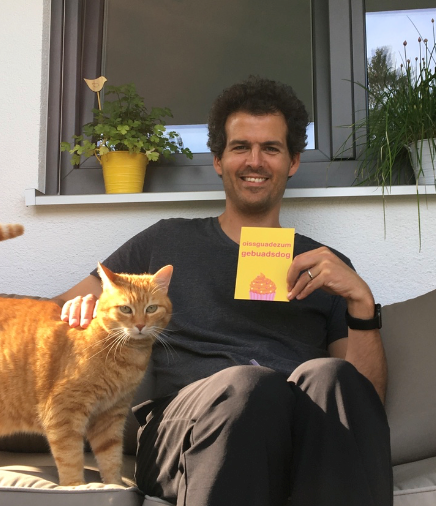 “Dear Jeremy,
“Dear Jeremy,
When I arrived at Oxford to interview for a PhD position, you dismantled my stereotypes of the Oxford don from minute one: My future supervisor was actually unpretentious, approachable, amicable, and no friend of the art sugar-coating (“your thesis topic is boring”). I changed my topic, and found a mentor who would support me through personal lows (“you really should buy your girlfriend some flowers”), frequent professional doubts (“whatever others have written, you can do better”) and difficult career choices when contemplating to take a job in (less glamorous) Kaiserslautern rather than continuing my stint in Oxford (“as long as you can publish there, go”). Thanks for your unfailing support in all these years, your continuing counsel (“take it, it’s for free”) and for trusting me to co-pilot your journal. Happy birthday and thanks for everything – live long, stay healthy and happy and keep filling up my Email inbox every day the future brings.
Cheers,
Berthold”
Wolfgang Rüdig, Reader in Politics, University of Strathclyde
 “Dear Jeremy,
“Dear Jeremy,
Greetings from a dark and rainy Glasgow on election day. British humour in the shape of “dogs at polling stations” provides some welcome respite. I hope you have a wonderful birthday and many happy returns,
Wolfgang”
Philipp Schroeder, JEPP’s Social Media Editor, University College London

Dear Jeremy,
I wish you all the best on your 75th birthday, it has been a pleasure working with you over the past two years, your humour and encouragement made me feel part of the team right from the beginning. Even though I have never met you in person, you are certainly a role model: A remarkable career in academia, you have a dog, and — judging from the pictures you send me — even a boat?! What else could anyone wish for?
Lots of reasons to celebrate and I hope you do so today!
Best wishes from London,
Philipp
Robert Thomson, Professor of Political Science, University of Strathclyde (actually on the jump to Monash University)
“ Happy Birthday Jeremy! You’ve been and continue to be a great inspiration to us all. You should be proud of your outstanding work on comparative public policy and European Union politics, which is marked by rigour, relevance and timelessness. In your down-to-earth style, you’ve developed new ways of thinking while reminding us that newfangled theories and methods often rediscover what was said long ago, usually far more eloquently.
Happy Birthday Jeremy! You’ve been and continue to be a great inspiration to us all. You should be proud of your outstanding work on comparative public policy and European Union politics, which is marked by rigour, relevance and timelessness. In your down-to-earth style, you’ve developed new ways of thinking while reminding us that newfangled theories and methods often rediscover what was said long ago, usually far more eloquently.
You’ve also had a big and positive impact on the generations of students you’ve taught including me. I don’t remember much from the first-year lectures at Strathclyde in 1989, but we both know that my current perch in the crow’s nest and immanent flight South have a great deal to do with your mentoring and support for which I’m grateful.
I wish you and Sonia many more happy years and hope to visit you again in the not too distant future.”
Amy Verdun, Professor of Political Science, University of Victoria
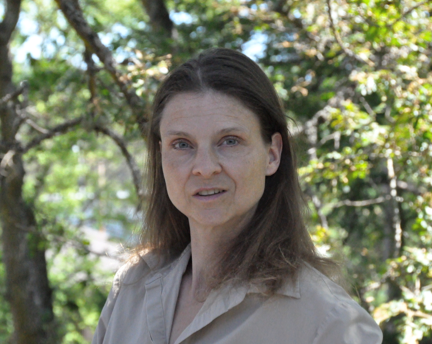 “Dear Jeremy,
“Dear Jeremy,
Congratulations on your 75th birthday. Time flies. I can hardly imagine how fast the time goes. When we first met, it was in Florence, in 1994, when you came to recruit potential postdocs for your European Union Human Capital Mobility Fellowship project. We did not realise that you were recruiting; just that our President, Yves Mény, was pressing final-years’ political science students to meet with you after the lecture in your office, which was located five flights of stairs up from the seminar room (i.e. on the top floor of the EUI).
I took Professor Mény up on his offer and went into your office to talk a bit (even though I was not sure about what). I remember your first, blunt, question: whether I had lived in the UK before? My answer ‘no’. Your answer ‘good’. (The reason of course was that you needed to recruit candidates who had not lived in the UK in the past few years in order to qualify for the EU mobility grant). Anyway, we started talking and the rest is history.
Then we all went to Essex: Gerda Falkner, Michael Nentwich, Thomas Christiansen, Thomas Lawton, Annemarie Sprokkereef and myself. It was a really excellent group of people that you had recruited; we still stay in touch. One of the pieces of advice that you gave me at some point was, when I was contemplating whether to do some work as a consultant (which would have paid very well) was whether I was a ‘serious scholar or not’. If serious, then forfeit the big bucks and concentrate on publications. But you did not expect us to stay poor for ever: another piece of advice you gave me, at the end of my postdoc, was that I should leave the UK after my postdoc was over, because it is impossible to make a living on an academic starting salary in the UK (seen that I had daycare costs to take care of)!
Not only did you give us good advice; I also appreciated that you invited us all to comment on the development of your, at the time, new journal, the Journal of European Public Policy. You wanted to know was it theoretical enough, did the right people publish in it, how to balance theoretical and empirical contributions in the journal. You took all our views seriously and made actual changes to the journal.
It was sad for us when you moved to New Zealand; it was more difficult to keep in touch. Lucky for us that you kept doing the journal so that we would always, one way or another, stay connected through the work you do with the journal. I was also pleased that you were able to support me in the years when I was first hired in Canada on a tenure-track position.
Thanks, Jeremy, for a friendship that has now lasted more than two decades. It was great we have been able to stay in touch, even whilst continents apart. If you are ever out west, please come look me up.
Amy Verdun”
Chris Wlezien, Professor of Government, University of Texas at Austin
 “Dear Jeremy,
“Dear Jeremy,
I was wondering where the study of European public policy would be without you. To get some sense, I looked at where things stood when you began and where we are now, and what you did in between. You have left quite a mark changing both our research approaches and our understanding of how the world works. Thank you for this and your leadership of the journal, and cheers to you on this special birthday!”









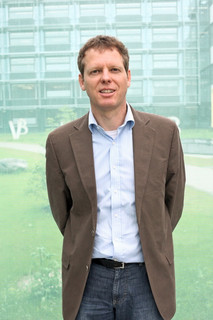


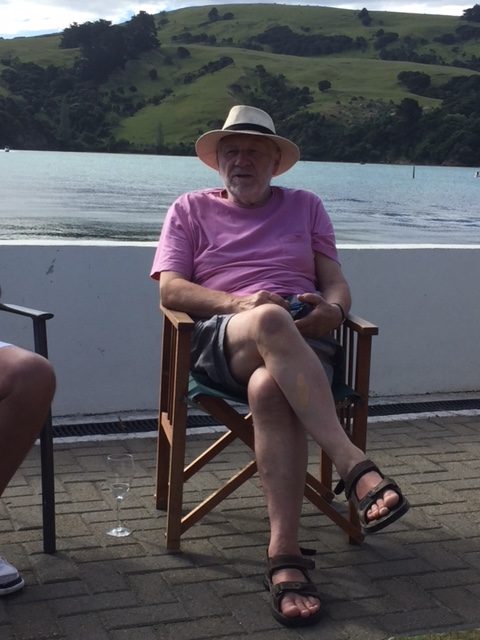 Jeremy: As usual I will be spending Christmas at our holiday house in Akaroa, with Sonia, Tessa, Molly, and our 14-year old dog Harvey. He doesn’t swim but likes to paddle and, like a small child, never wants to stop. Thus, when it is time to come home he digs both paws in the sand and we have to drag him up the beach, all four legs at 45 degrees! The attempt at paddle boarding last Christmas (my idea of a family treat!) was a total disaster as I fell off three times and had to be towed back to the beach, to the great amusement of our neighbours. I think Harvey has the right policy towards water sports but I am determined to take the Kayaks out in the bay. So, if this proves to be as bad a mistake as last year, you will all know where the JEPP co-editor met his end! As you can see from the photo of Akaroa, it is as good a place as any to meet one’s end! For our summer holiday in late January, we all head to Golden Bay for another holiday on the beach. Thus, we have adapted to the Kiwi lifestyle.
Jeremy: As usual I will be spending Christmas at our holiday house in Akaroa, with Sonia, Tessa, Molly, and our 14-year old dog Harvey. He doesn’t swim but likes to paddle and, like a small child, never wants to stop. Thus, when it is time to come home he digs both paws in the sand and we have to drag him up the beach, all four legs at 45 degrees! The attempt at paddle boarding last Christmas (my idea of a family treat!) was a total disaster as I fell off three times and had to be towed back to the beach, to the great amusement of our neighbours. I think Harvey has the right policy towards water sports but I am determined to take the Kayaks out in the bay. So, if this proves to be as bad a mistake as last year, you will all know where the JEPP co-editor met his end! As you can see from the photo of Akaroa, it is as good a place as any to meet one’s end! For our summer holiday in late January, we all head to Golden Bay for another holiday on the beach. Thus, we have adapted to the Kiwi lifestyle. Berthold opts for the same procedure as every year and spends the holiday season in Florida with Jessica and his in-laws. He will, first things first, visit his favourite singing Christmas tree in Palm Beach, before immersing himself in the eccentricity of Floridian life (which involves surviving road-trips on the I-95, yoga on the beach, avoiding the area around Mar-a-Lago, and being ripped off in a bar in Miami Beach). Before too long, he will miss his home (and gingery cat) in the country-side in upper Bavaria.
Berthold opts for the same procedure as every year and spends the holiday season in Florida with Jessica and his in-laws. He will, first things first, visit his favourite singing Christmas tree in Palm Beach, before immersing himself in the eccentricity of Floridian life (which involves surviving road-trips on the I-95, yoga on the beach, avoiding the area around Mar-a-Lago, and being ripped off in a bar in Miami Beach). Before too long, he will miss his home (and gingery cat) in the country-side in upper Bavaria.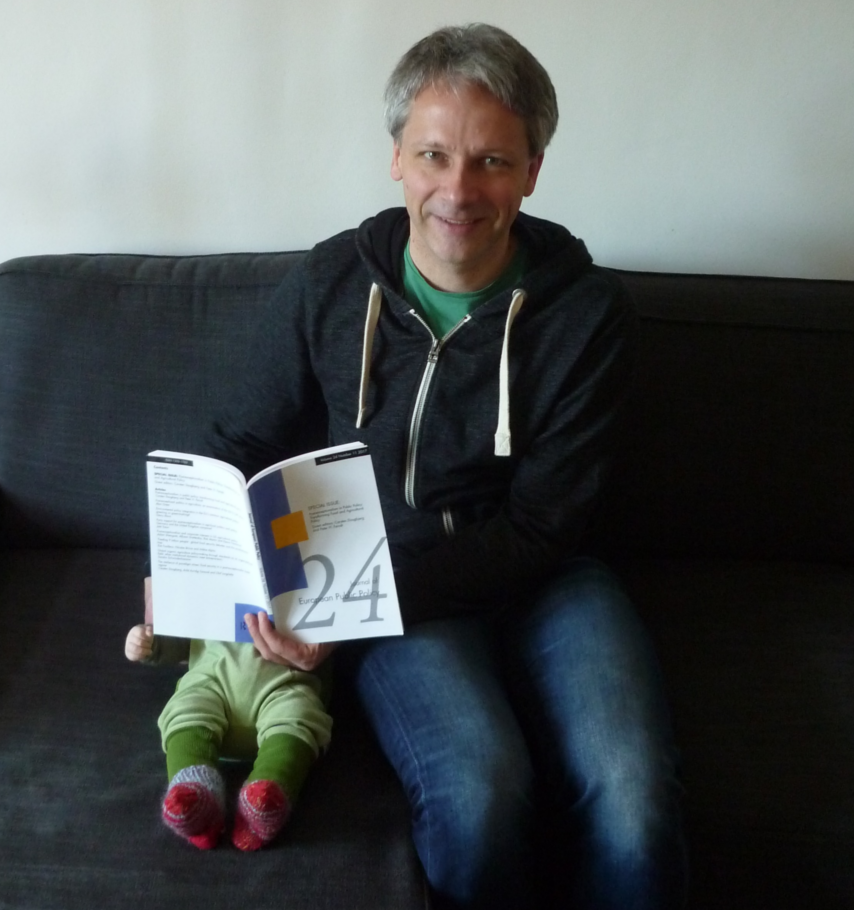 Michael is looking forward to many interesting debate and research agenda proposals in 2018 in order to stay up to date about cutting edge research. Apart from research, he has his own new “agenda”: Kolja, 3 months. This year’s Christmas readings will include “Gulliver’s Travels” and “Baby Massage for Dummies”…
Michael is looking forward to many interesting debate and research agenda proposals in 2018 in order to stay up to date about cutting edge research. Apart from research, he has his own new “agenda”: Kolja, 3 months. This year’s Christmas readings will include “Gulliver’s Travels” and “Baby Massage for Dummies”… As usual, Philipp will escape London’s hustle and bustle and swap meat pies and stale ale with Mum’s Christmas cookies and Glühwein. There will be lots of time over the holidays to reflect on a great year, and most memorably yet another trip across the globe to visit the rainforests in Brunei.
As usual, Philipp will escape London’s hustle and bustle and swap meat pies and stale ale with Mum’s Christmas cookies and Glühwein. There will be lots of time over the holidays to reflect on a great year, and most memorably yet another trip across the globe to visit the rainforests in Brunei.
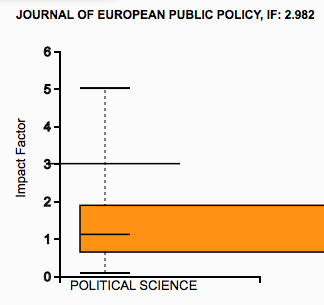 Thomson & Reuters has released the new Journal Citation Report (JCR), which include the impact factor scores for 2016. JEPP is listed in two sections: Political Science and Public Administration.
Thomson & Reuters has released the new Journal Citation Report (JCR), which include the impact factor scores for 2016. JEPP is listed in two sections: Political Science and Public Administration.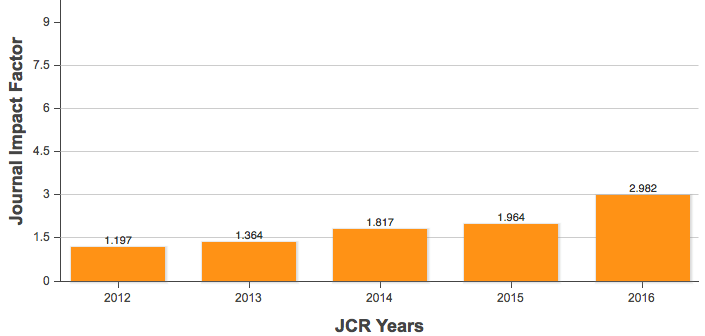
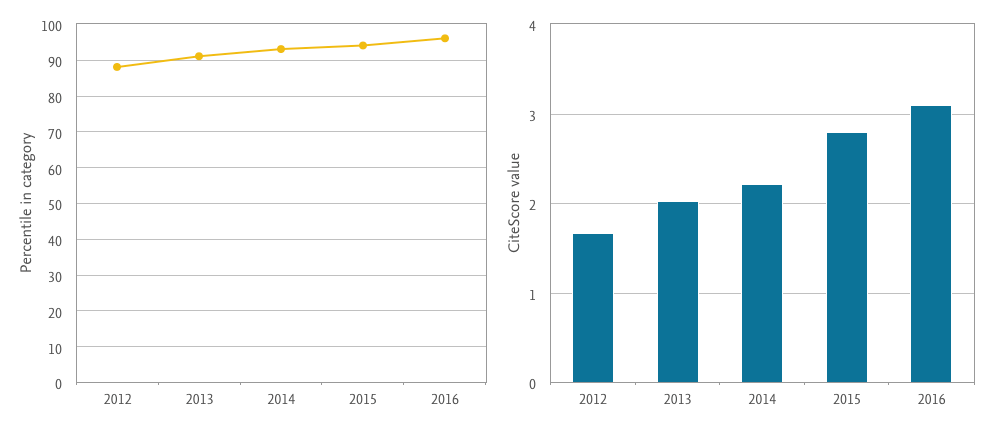
 Dear Jeremy,
Dear Jeremy, “Congratulations to the nicest, most professional, most humorous, most encouraging person … that I have never met in person. Jeremy, I wish you all the best for your 75th birthday and I hope to meet you before you turn 100.
“Congratulations to the nicest, most professional, most humorous, most encouraging person … that I have never met in person. Jeremy, I wish you all the best for your 75th birthday and I hope to meet you before you turn 100. “Of the many reasons I have to be grateful to Jeremy, one of the most powerful is the influence that he has had upon my supervising of PhD students. I recall in particular his wise advice to his own doctoral students that they should always keep in mind the need to have (and frequently to refine) a disciplined 500-word statement of the theoretical contribution that their research is making, and to show why that contribution matters for political science. He elaborated that imperative brilliantly but succinctly, and I have never forgotten it. So – thank you, Jeremy, and very many happy returns on the occasion of your 75th!”
“Of the many reasons I have to be grateful to Jeremy, one of the most powerful is the influence that he has had upon my supervising of PhD students. I recall in particular his wise advice to his own doctoral students that they should always keep in mind the need to have (and frequently to refine) a disciplined 500-word statement of the theoretical contribution that their research is making, and to show why that contribution matters for political science. He elaborated that imperative brilliantly but succinctly, and I have never forgotten it. So – thank you, Jeremy, and very many happy returns on the occasion of your 75th!” “Dear Jeremy,
“Dear Jeremy, “Dear Jeremy,
“Dear Jeremy, “Dear Jeremy,
“Dear Jeremy, “My overwhelming sense of Jeremy is that of a force of nature – his energy is irrepressible. My recollection of arriving to work for Jeremy, in my very first job as a research assistant, typically involved finding a fax that had arrived at 6 am, an answer-machine message that had arrived at 5am and a handwritten note on my key-board, left the night before… thankfully it was not yet the age of Email. EPPI, at Warwick University, was where Jeremy set up JEPP and where he created the most amazing environment for young researchers to thrive and flourish. If we were willing to work hard, he would back us all the way – even push us forward when we hesitated to push ourselves. So many of us – Dan Wincott, Claudio Radaelli, Amy Verdun, Gerda Falkner, Danica Fink Haffner, to name a few – passed through EPPI, and still value the friendships forged and talk about the privileged environment that we worked in and that allowed us to grow. I can’t tell you how often I repeat lessons learned from Jeremy – as a teacher, as a research mentor and as a manager – to my students and to my colleagues. Power, Jeremy would remind us, like beauty, is not evenly distributed – but there is a great beauty in exercising power well and in helping to distribute the joy of teamwork, learning and pushing the boundaries. For all that and more – thanks Jeremy – lang may yer lum reek!”
“My overwhelming sense of Jeremy is that of a force of nature – his energy is irrepressible. My recollection of arriving to work for Jeremy, in my very first job as a research assistant, typically involved finding a fax that had arrived at 6 am, an answer-machine message that had arrived at 5am and a handwritten note on my key-board, left the night before… thankfully it was not yet the age of Email. EPPI, at Warwick University, was where Jeremy set up JEPP and where he created the most amazing environment for young researchers to thrive and flourish. If we were willing to work hard, he would back us all the way – even push us forward when we hesitated to push ourselves. So many of us – Dan Wincott, Claudio Radaelli, Amy Verdun, Gerda Falkner, Danica Fink Haffner, to name a few – passed through EPPI, and still value the friendships forged and talk about the privileged environment that we worked in and that allowed us to grow. I can’t tell you how often I repeat lessons learned from Jeremy – as a teacher, as a research mentor and as a manager – to my students and to my colleagues. Power, Jeremy would remind us, like beauty, is not evenly distributed – but there is a great beauty in exercising power well and in helping to distribute the joy of teamwork, learning and pushing the boundaries. For all that and more – thanks Jeremy – lang may yer lum reek!” “Congratulations! 75 eh. That means you were twice my age when we first met at Keele 39 years ago. You pretended to have lost my essay marks so you could give me a bollocking for being too quiet and too arrogant in your tutorials. You’ve still got more energy than I’ve ever had, and I hope all goes well in your new career as Christchurch’s premier builder.”
“Congratulations! 75 eh. That means you were twice my age when we first met at Keele 39 years ago. You pretended to have lost my essay marks so you could give me a bollocking for being too quiet and too arrogant in your tutorials. You’ve still got more energy than I’ve ever had, and I hope all goes well in your new career as Christchurch’s premier builder.” “To Jeremy:
“To Jeremy: “Dear Jeremy, warm congratulations from Vienna, Austria! It seems like yesterday (but is an incredibly long time ago) that the two of us have joined your research group in the UK to study the EU’s policy process. And it is not only via your great success journal JEPP that we have stayed in contact. We always appreciate to receive your news from “down under” and to see how you keep going so strong! At this point we loudly lobby for your continued best health and high spirits, with all lobbying addressees you may want to suggest. “Power and Policy-Making” is, in these matters, probably located elsewhere than in Brussels (if anywhere) and we fear that democratic legitimacy is quite short in supply… BUT we have no doubt that, as a “Godfather” of lobbying studies, you will certainly receive extraordinary treatment. Hence we trust that your continued well-being for many decades to come is assured! With all our very best wishes, and we hope to meet up soon in Europe or ‘down under’!
“Dear Jeremy, warm congratulations from Vienna, Austria! It seems like yesterday (but is an incredibly long time ago) that the two of us have joined your research group in the UK to study the EU’s policy process. And it is not only via your great success journal JEPP that we have stayed in contact. We always appreciate to receive your news from “down under” and to see how you keep going so strong! At this point we loudly lobby for your continued best health and high spirits, with all lobbying addressees you may want to suggest. “Power and Policy-Making” is, in these matters, probably located elsewhere than in Brussels (if anywhere) and we fear that democratic legitimacy is quite short in supply… BUT we have no doubt that, as a “Godfather” of lobbying studies, you will certainly receive extraordinary treatment. Hence we trust that your continued well-being for many decades to come is assured! With all our very best wishes, and we hope to meet up soon in Europe or ‘down under’! “I originally knew of Jeremy through his work on pressure groups, but he wisely decided to move on from that area of work and develop his expertise on the European Union. This led to the inspired decision to set up the Journal of European Public Policy. This filled a real gap in the market and it quickly became established as a leading journal in the field thanks to Jeremy’s understanding of where the discipline was going and the care he took with articles. It’s been a long journey intellectually and also geographically from Shropshire to New Zealand. Very best wishes on your 75th birthday.”
“I originally knew of Jeremy through his work on pressure groups, but he wisely decided to move on from that area of work and develop his expertise on the European Union. This led to the inspired decision to set up the Journal of European Public Policy. This filled a real gap in the market and it quickly became established as a leading journal in the field thanks to Jeremy’s understanding of where the discipline was going and the care he took with articles. It’s been a long journey intellectually and also geographically from Shropshire to New Zealand. Very best wishes on your 75th birthday.” “Best wishes to you and family on your birthday. I’d like to thank you for encouraging me in the early years of my career – without you I would not have commenced on an academic path. Indeed, I’ll never forget when you called me up at home (which was then in Germany) and asked (without introduction or salutation) “so do you want to work for me or do I have to advertise?” and I went to work as your research assistant on an ESRC project. From that point onwards, I was an academic…”
“Best wishes to you and family on your birthday. I’d like to thank you for encouraging me in the early years of my career – without you I would not have commenced on an academic path. Indeed, I’ll never forget when you called me up at home (which was then in Germany) and asked (without introduction or salutation) “so do you want to work for me or do I have to advertise?” and I went to work as your research assistant on an ESRC project. From that point onwards, I was an academic…” “Jeremy was largely responsible for encouraging me while I was an undergraduate to consider staying on to do postgraduate research. He became my supervisor for my PhD. Even when I had started a job in academic publishing while finishing off my PhD part-time, he encouraged me to apply for lecturing jobs. He stressed the importance of submitting an article drawn from my PhD research to a journal even before I had submitted my PhD. The article which I submitted to Public Administration played an important role in my obtaining a lecturing job at the University of Strathclyde. A few years later a new Professor and Head of Department was appointed at Strathclyde, one Jeremy Richardson. Ten years later, when Jeremy moved on, I ended up with the impossible task of replacing him as head of department. Naturally, when he became editor of the Journal of European Public Policy, he pressured to me to submit an article to it, and I had an article accepted in first volume.”
“Jeremy was largely responsible for encouraging me while I was an undergraduate to consider staying on to do postgraduate research. He became my supervisor for my PhD. Even when I had started a job in academic publishing while finishing off my PhD part-time, he encouraged me to apply for lecturing jobs. He stressed the importance of submitting an article drawn from my PhD research to a journal even before I had submitted my PhD. The article which I submitted to Public Administration played an important role in my obtaining a lecturing job at the University of Strathclyde. A few years later a new Professor and Head of Department was appointed at Strathclyde, one Jeremy Richardson. Ten years later, when Jeremy moved on, I ended up with the impossible task of replacing him as head of department. Naturally, when he became editor of the Journal of European Public Policy, he pressured to me to submit an article to it, and I had an article accepted in first volume.” “Berthold tells me Jeremy is nearly 75. I would need confirmation: seems unlikely! … I met Jeremy in 1973/4 in Keele as an RA. Where is Stuart Brookes who was also on the project? (My goodness: we over produced!) I was in a little cupboard room but with Jack Hayward as a slightly intimidating neighbour. (I was easily intimidated: Jack was never less than encouraging.)
“Berthold tells me Jeremy is nearly 75. I would need confirmation: seems unlikely! … I met Jeremy in 1973/4 in Keele as an RA. Where is Stuart Brookes who was also on the project? (My goodness: we over produced!) I was in a little cupboard room but with Jack Hayward as a slightly intimidating neighbour. (I was easily intimidated: Jack was never less than encouraging.) “Some people change your life. Jeremy changed mine when he offered me a job at Strathclyde in 1988. So, somewhat belatedly, I’d like to take the occasion of his 75th birthday to thank him publicly for the positive impact he has had upon my career. I missed the opportunity to record my appreciation when he left Strathclyde 25 years ago, as my only statement to him at the time was: ‘I hope you aren’t taking the fridge with you’. (As Head of Department he had invested in a new refrigerator for the Department shortly before his departure). Fortunately, he has outlived the fridge he left behind, and many more fridges since.
“Some people change your life. Jeremy changed mine when he offered me a job at Strathclyde in 1988. So, somewhat belatedly, I’d like to take the occasion of his 75th birthday to thank him publicly for the positive impact he has had upon my career. I missed the opportunity to record my appreciation when he left Strathclyde 25 years ago, as my only statement to him at the time was: ‘I hope you aren’t taking the fridge with you’. (As Head of Department he had invested in a new refrigerator for the Department shortly before his departure). Fortunately, he has outlived the fridge he left behind, and many more fridges since. “Jeremy,
“Jeremy, “Dear Jeremy,
“Dear Jeremy, “My warmest birthday wishes to Jeremy! 75 and an inspiring author, editor, emeritus professor, and speaker – let us wish that academia does this to all of us!”
“My warmest birthday wishes to Jeremy! 75 and an inspiring author, editor, emeritus professor, and speaker – let us wish that academia does this to all of us!” “Jeremy,
“Jeremy, “Shrewd and Practical.
“Shrewd and Practical. “I met with Jeremy for the first time at the University of Warwick, in 1993 – he became my mentor during my staying at Warwick. At that time Jeremy was commuting from Cambridge, getting to the office at 7 am. One of my first days at the European Public Policy Institute (EPPI, which we often pronounced ‘HAPPY’) I tried to get to the office early, at 8:20. Jeremy saw me getting into the building and said ‘why so late, today? I have been here since 7!’ After having seen my jaw dropping, he burst out laughing.
“I met with Jeremy for the first time at the University of Warwick, in 1993 – he became my mentor during my staying at Warwick. At that time Jeremy was commuting from Cambridge, getting to the office at 7 am. One of my first days at the European Public Policy Institute (EPPI, which we often pronounced ‘HAPPY’) I tried to get to the office early, at 8:20. Jeremy saw me getting into the building and said ‘why so late, today? I have been here since 7!’ After having seen my jaw dropping, he burst out laughing. “Dear Jeremy,
“Dear Jeremy, “Dear Jeremy,
“Dear Jeremy, Dear Jeremy,
Dear Jeremy, Happy Birthday Jeremy! You’ve been and continue to be a great inspiration to us all. You should be proud of your outstanding work on comparative public policy and European Union politics, which is marked by rigour, relevance and timelessness. In your down-to-earth style, you’ve developed new ways of thinking while reminding us that newfangled theories and methods often rediscover what was said long ago, usually far more eloquently.
Happy Birthday Jeremy! You’ve been and continue to be a great inspiration to us all. You should be proud of your outstanding work on comparative public policy and European Union politics, which is marked by rigour, relevance and timelessness. In your down-to-earth style, you’ve developed new ways of thinking while reminding us that newfangled theories and methods often rediscover what was said long ago, usually far more eloquently. “Dear Jeremy,
“Dear Jeremy, “Dear Jeremy,
“Dear Jeremy,